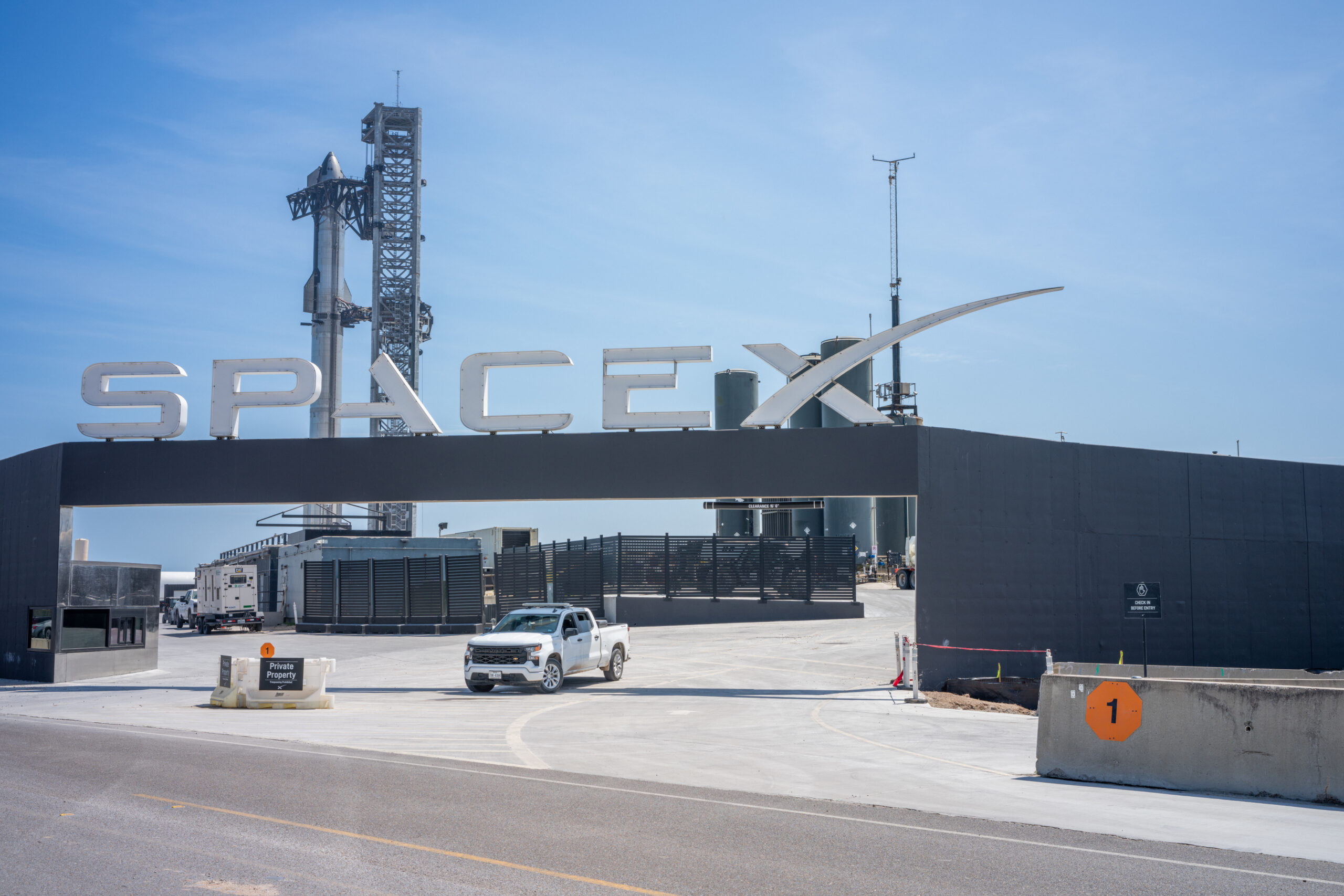Elon Musk’s SpaceX employees voted this month to make their small community on the southeastern tip of Texas its own city, with a mayor and city commissioners.
But the rest of the tech billionaire’s neighbors near the newly incorporated Starbase in rural Cameron County, where he lives in a home on the outskirts of Brownsville, are not so thrilled with his activities as a businessman and now as head of the Trump administration’s Department of Government Efficiency.
Residents have long complained about the environmental impact of SpaceX’s rocket launches, which rain debris like sheet metal and pieces of concrete on beaches and have caused wildfires.
Now, Musk’s DOGE is having a major impact in the county and the rest of South Texas, an area with higher rates of poverty and less access to resources than much of the rest of the state — the initiative’s budget cutbacks have resulted in reduced funding for area food banks, fewer staffers at VA facilities to provide health care to veterans and the termination of grants for students seeking internships, among other cuts.
“We’ve been forcibly made into Elon Musk’s backyard against our will,” said Bekah Hinojosa, a local environmental activist. “Everyone in this region is constantly in survival mode, no matter who’s in office. Right now I don’t have health care, for example. Most of us are already dealing with problems. And now to have these new problems added to the existing problems.”
Rene Medrano, a longtime Brownsville resident who retired as the high school’s longtime football coach with seven trips to the playoffs, said that Musk was welcomed when he first arrived in the area due to the influx of jobs and economic activity. But as SpaceX grew and rocket launches started damaging the environment, often cutting off access to local beaches, he grew more critical. “People are up in arms because of the access to the beach,” he said.
He hears from neighbors about the local impacts of DOGE. “I know it’s hurting people and I know it’s affecting people,” Medrano said. “And I know it’s going to continue if they keep cutting the way they’re cutting. It’s very obvious. How can it not affect you?”
The Food Bank of the Rio Grande Valley serves meals to 88,000 people every week in Cameron, Willacy and Hidalgo counties, with half of its funding coming from federal programs. Recently, 23 truckloads of food on their way to the food bank were cancelled due to DOGE cuts at the U.S. Department of Agriculture.
“This cancellation could not have come at a worse time, with the recent flooding event that we experienced and the summer vacation at our doorstep,” food bank official Omar Rodriguez told ValleyCentral.com.
“The food bank helps a lot of people in the valley,” said Hinojosa, who said she worked as a volunteer there during the pandemic. “There are always long lines outside, especially now after the flooding. A lot of people are hungry.”
A White House official told Capital & Main that the USDA “has not and will not lose focus on its core mission of strengthening food security, supporting agricultural markets, and ensuring access to nutritious foods.” The official noted that in March, the agency “released over half a billion in previously obligated funds for Local Food Purchase Assistance (LFPA), LFPA for Tribes, and the Local Food for Schools program to fulfill existing commitments and support ongoing local food purchases.”
Elsewhere in the region, just a week after 20 students at the University of Texas Rio Grande Valley learned they’d be part of a museum internship program that included funds for housing, transportation and their work, they found out the federally funded grant had been terminated due to DOGE’s cuts to the Institute of Museum and Library Services (IMLS), an independent federal agency.
“We all felt devastated,” Stephanie Álvarez, a professor of Mexican American Studies at the school, told myRGV.com. “Because students don’t have this opportunity … We were just stunned because we put a lot of effort into it but also because all of these students expecting to go have these internships and that possibly doesn’t exist anymore unless we find at least $60,000.”
And changes at the U.S. Department of Veterans Affairs, where DOGE plans to cut about 15% of the workforce, are also having an impact in South Texas — such as at the South Texas Veterans Health Care System in San Antonio, which is considered the fastest-growing VA network in the country. In February, the agency fired workers at hospitals and clinics across the state, including in San Antonio, Austin and Houston, though it rehired them in the wake of a lawsuit filed by multiple unions representing federal employees. And now it’s slowing down the hiring of new employees even as the number of veterans in the region who need health care keeps growing, say veterans.
A spokesperson for the VA said, “We’re going to maintain VA’s mission-essential jobs like doctors, nurses and claims processors, while phasing out non-mission essential roles like DEI officers. The savings we achieve will be redirected to veteran health care and benefits.”
In an email to Capital & Main, White House spokesperson Anna Kelly replied: “DOGE’s work to eliminate waste, fraud, and abuse is streamlining federal services to the benefit all Americans — especially our Veterans, who have endured decades of VA bureaucracy and bloat that has hindered their ability to receive timely and quality care. President Trump is restoring accountability to taxpayers, which ultimately strengthens federal programs for those in need.”
“We’re hurting,” said Don Edge, a Navy vet and AFL-CIO official based in San Antonio who represents many workers at the agency. “I’ve got grown men and women coming into my office and they’re in tears, saying that they can’t keep up with the demand.”
The cuts of probationary employees and reduced hiring of new employees have resulted in extended waiting times and relocation of veterans to facilities far from their homes, said Edge. “I’m a veteran myself, and to not be able to have services or have services delayed because of these cuts is horrible.”
As an example, Edge cited Villa Serena, a treatment center for veterans with mental health or substance use issues. “They cut the number of beds by 35%-40%, and they’re sending the patients hundreds of miles to other VA facilities in Waco and Temple — where they’re on their own, without friends and family nearby, while they struggle with these issues.”
A spokesperson for the VA said that the facility decreased beds at Villa Serena from 66 to 45 “to offer more recovery-oriented care for veterans seeking treatment for substance use disorders.” She added: “By reducing the amount of available beds, space has been converted into a small gym, meditation room, and an admission waiting area allowing more privacy during the admission process.”
The spokesperson said that “there is no data supporting claims of extended wait times or wait times lasting 3-4 months, and if you report otherwise, you will be spreading disinformation.”
Edge insisted that waiting times “have been worse since Trump took office.” He added, “If I was to call right now and ask for a dental appointment, I don’t know when I’d have it.”
To highlight the urgency of the issue and the need for services, Edge said that a veteran with mental health issues killed himself with a gunshot to the head outside the doors of the Audie Murphy Memorial Veterans Hospital in San Antonio a few weeks ago, which reminded him of a spate of suicides on VA campuses in 2017 and 2018 during earlier rounds of budget cuts. “I’ve been here for 22 years and this is the worst it’s ever been.”
Copyright 2025 Capital & Main


 Latest NewsFebruary 3, 2026
Latest NewsFebruary 3, 2026
 Featured VideoFebruary 4, 2026
Featured VideoFebruary 4, 2026
 Column - State of InequalityFebruary 5, 2026
Column - State of InequalityFebruary 5, 2026
 Column - California UncoveredFebruary 6, 2026
Column - California UncoveredFebruary 6, 2026
 The SlickFebruary 10, 2026
The SlickFebruary 10, 2026
 Latest NewsFebruary 12, 2026
Latest NewsFebruary 12, 2026
 Latest NewsFebruary 10, 2026
Latest NewsFebruary 10, 2026
 Column - State of InequalityFebruary 12, 2026
Column - State of InequalityFebruary 12, 2026

